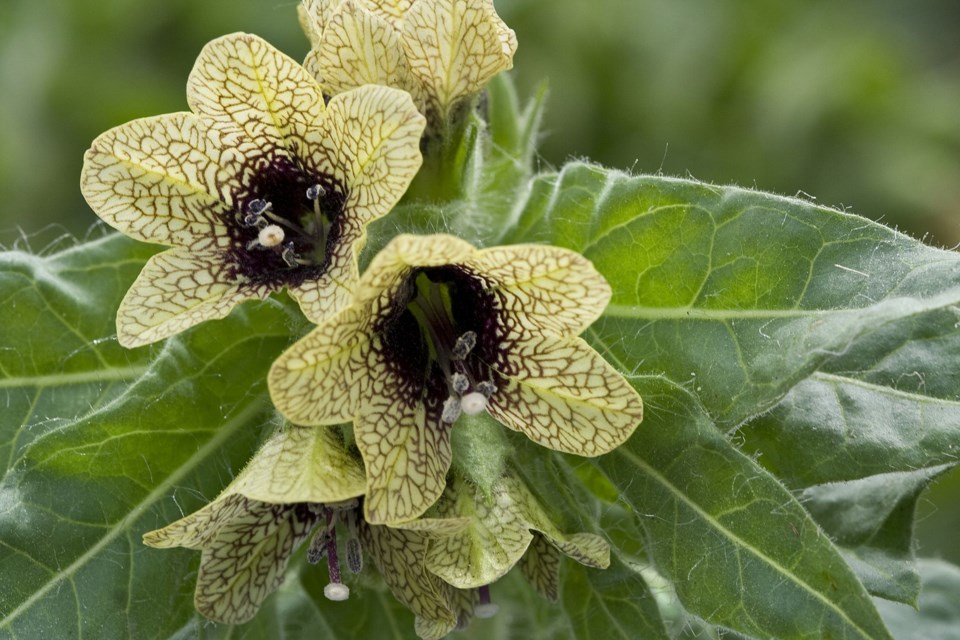The Town of Cochrane says it has responded to multiple complaints about a noxious, invasive weed potentially fatal to animals and humans in numerous areas around the community.
Social media and the town's inbox were abuzz with concerns about a potential threat to the health of pets and people when members of the public noticed black henbane growing along Griffin Road and community dog parks.
Julie Haskill, communications adviser with the town of Cochrane, said the town has responded to all complaints about the noxious weed.
"The black henbane has been removed immediately as reports come in. The one plant that was near the bench in the dog park has already been removed," Haskill stated in an email. "The plants that were along Griffin Road were the responsibility of the contractor (private land) and were treated last week."
Haskill added the town has an invasive species control policy and works to respond to cases as quickly as possible by either dealing with issues on town land or directing property owners to address problems on private land.
In the case of invasive species reported on private land, Haskill said "landowners are notified and given a week to take care of it."
Failing to comply with such a directive can come with significant fines under the town's Nuisance and Unsightly Premisis Bylaw.
Haskill said the town has a number of ways of dealing with weeds such as black henbane, including digging it up and spraying, but added it doesn't typically control weeds with chemical spray in a dog parks.
Members of the public who notice invasive species growing around town are urged to report them to the town.
For more information on the town's weed policy, go to https://www.cochrane.ca/222/Weeds-in-Cochrane.
According to the Canadian Poisonous Plants Information System, "black henbane (Hyoscyamus niger) is a naturalized herb found across parts of southern Canada. This plant contains several alkaloids, and it has caused rare poisoning in humans, cattle, poultry, and swine."




